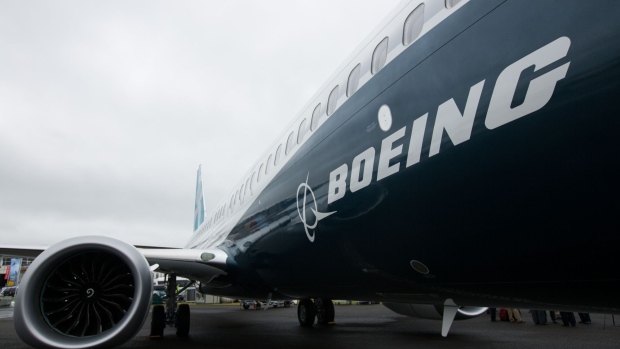Feb 4, 2020
Boeing to set loan at US$13B after lenders step up
, Bloomberg News

Boeing Co. set the size for its new loan at US$13 billion after saying last week that it had received enough commitments for a US$12 billion facility, according to people familiar with the matter.
The cash provides the U.S. planemaker with financial flexibility as the fallout of the 737 Max crisis takes a toll on the company’s finances and once-solid credit rating.
Boeing originally sought a US$10 billion loan led by Citigroup Inc. that grew in size as more banks asked to join the deal. The company received US$14 billion of commitments as of last week. The cash will help Boeing work through the grounding of the Max and production freeze. Boeing now faces a cash burn in the billions as it deals with lost revenue and supporting both suppliers and airline customers during the disruption.
Citi declined to comment. Boeing did not immediately respond to a request for comment.
The Max crisis has hit Boeing’s credit ratings, which are now split between the lowest and second-lowest tiers of investment grade. Boeing’s debt costs will increase if one more ratings company downgrades it fully into the triple-B space.
Moody’s Investors Service downgraded the company last week to Baa1, its second cut in the span of a month. It said it may lower its grade again given Boeing’s higher-than-expected cash burn and decision to maintain its dividend. S&P Global Ratings is considering downgrading the company’s A- rating, but said in a note last week that the new financing is a “net positive.” Fitch Ratings also grades Boeing at A-, and has a negative outlook on the debt.
The two-year loan is structured as a delayed-draw term loan, allowing Boeing the flexibility to wait to use the money until needed. Boeing could later pay down the loan with cash flow once the Max returns to the air. Or the company could potentially take out the debt with longer-term notes, though that would add more pressure to its credit ratings. Investment-grade loans can typically be repaid early without penalty, unlike bonds.





